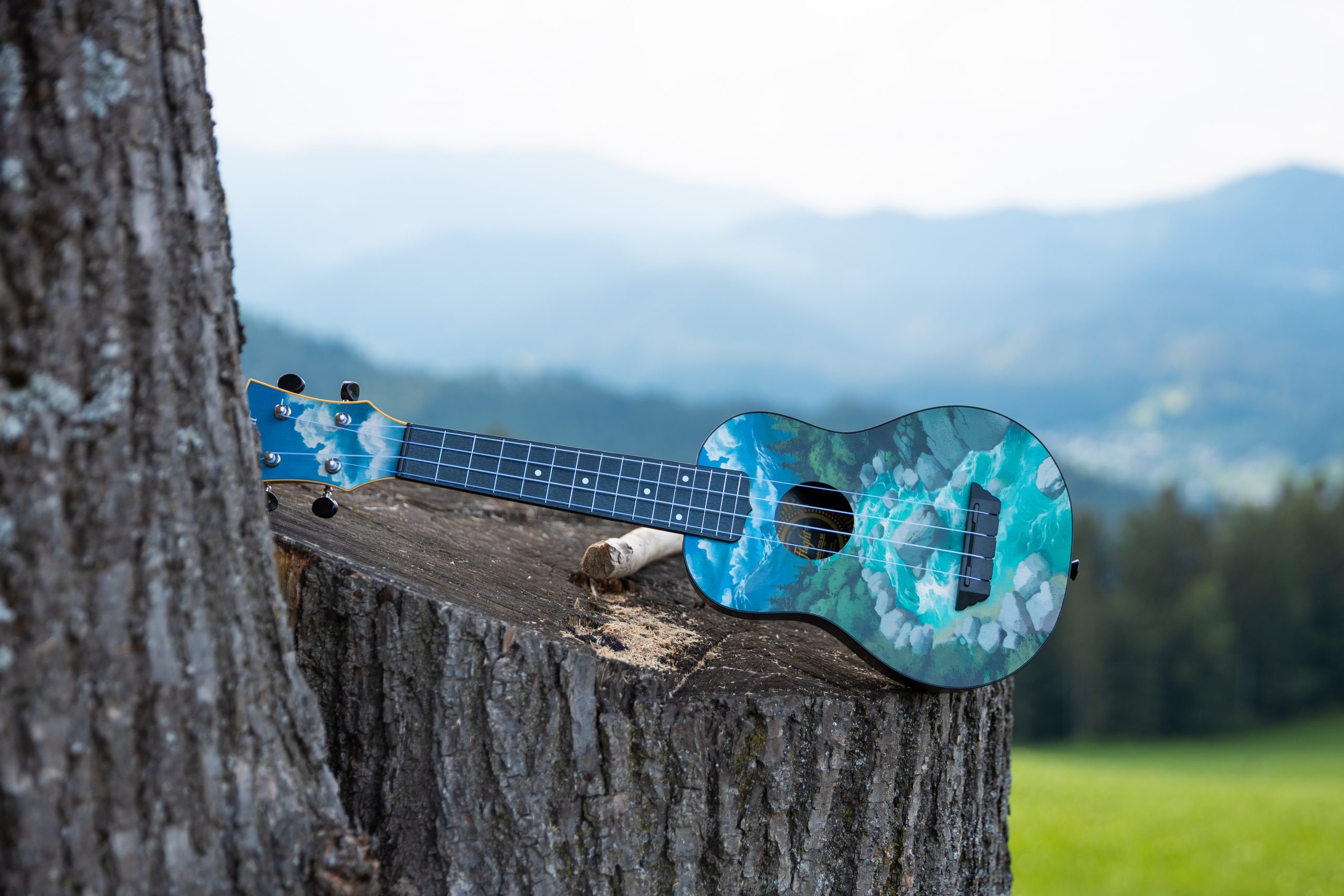The joyful spirit of ukulele music once again filled the legendary Tamsta Club as the…

Strumming through Time: The Birth of the Ukulele
Let’s take a melodic trip through time to explore how the ukulele came to be. The ukulele’s tale is a beautiful mix of cultural fusion, inventive spirit, and a dash of good timing and luck.
The Birthplace: Portugal and the Braguinha
Our tale begins in the early 19th century, on the lush volcanic island of Madeira, Portugal. There was an instrument on Madeira called the “braguinha” or “machete.” It was a smaller guitar-like instrument (in the lute family) that had been introduced to the island by Portuguese immigrants.
Across the Ocean: Migration to Hawaii
The humble braguinha found its way across the globe, carried by Portuguese immigrants seeking a new life in the sugar cane plantations of Hawaii. As the instrument reached the shores of the Hawaiian Islands in the late 19th century, its gentle melodies resonated with the locals. In 1879, a ship called “The Ravenscrag” landed in Hawaii with three Madierian woodworkers, who also built instruments. Their names were Manuel Nunes, Augusto Dias, and Jose do Espirito Santo. These woodworkers made instruments with the materials that were available in Hawaii, and the instrument that we now know as the ‘ukulele was born. This new instrument featured the body of the braguinha with the tuning of another instrument, the Rajão, with gut strings. ‘Ukulele translates as “jumping flea” in Hawaiian, and some believe this name is a playful reference to the quick fingerwork of players appearing like the agile leaps of fleas.
The Role of King Kalākaua: Patron of the Arts
King Kalākaua, often referred to as the “Merry Monarch” for his love of the arts and music, played a pivotal role in popularizing the ukulele. The king loved the instrument and played it–and what the king does, everyone does. The instrument became an integral part of Hawaiian culture, finding a place in traditional hula performances and accompanying the lilting melodies of Hawaiian songs.
Global Spread: Ukulele Mania
During the early 20th century, the ukulele expanded beyond its Hawaiian origin, captivating musicians around the globe. Its compact size, soothing tones, and easy playability fueled a worldwide ukulele craze. From jazz clubs to diverse stages, the ukulele symbolized joy and musical companionship. There have been three “waves” of popularity of the ukulele. The first followed the Panama-Pacific International exhibition in 1915. Shortly thereafter, Hawaiian music and the ukulele became very popular, and many composers wrote music in “the Hawaiian style” in the legendary Tin Pan Alley of New York City. The second wave struck in the 1950s due to the popularity of media star Arthur Godfrey, who played baritone ukulele and sold plastic Maccaferri ukuleles on his television show and through various publications.
Contemporary Resurgence: Flight Ukulele and Beyond
The most recent “wave” of the popularity began in the early 2000s, thanks to the sudden popularity of Israel Kamakawiwo’ole (IZ)’s cover of “Somewhere over the Rainbow,” and Jake Shimabukuro’s performance of “While My Guitar Gently Weeps” in Strawberry Fields (Central Park, New York City) on a viral video on a new shared streaming platform called YouTube.
Today, the ukulele continues to enchant new generations of musicians. Companies like Flight Ukulele celebrate the instrument’s rich history while pushing the boundaries of modern design and offering great value and quality craftsmanship. The ukulele has found its way into diverse musical genres, from traditional Hawaiian tunes to modern pop and rock, cementing its place as a legitimate instrument.
Conclusion: Strumming into the Future
As we strum our ukuleles and create melodies that echo through time, let’s make sure to pay homage to the cultural roots, creativity, and passion that created this extraordinary instrument. The ukulele’s journey from the shores of Madeira to the Hawaiian Islands and beyond is a testament to the power of music to connect people and to bridge cultures.
Whether you have mastered the ukulele or you are just beginning to explore its charming chords, understand that you are adding to a musical legacy that has lasted for centuries. Keep strumming with joy, and may the vibrant notes of the ukulele continue to inspire future generations!



